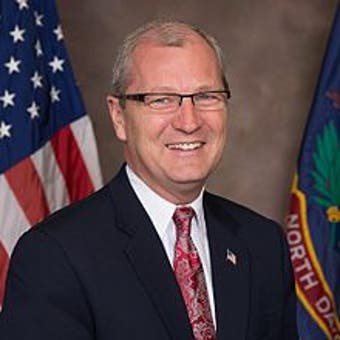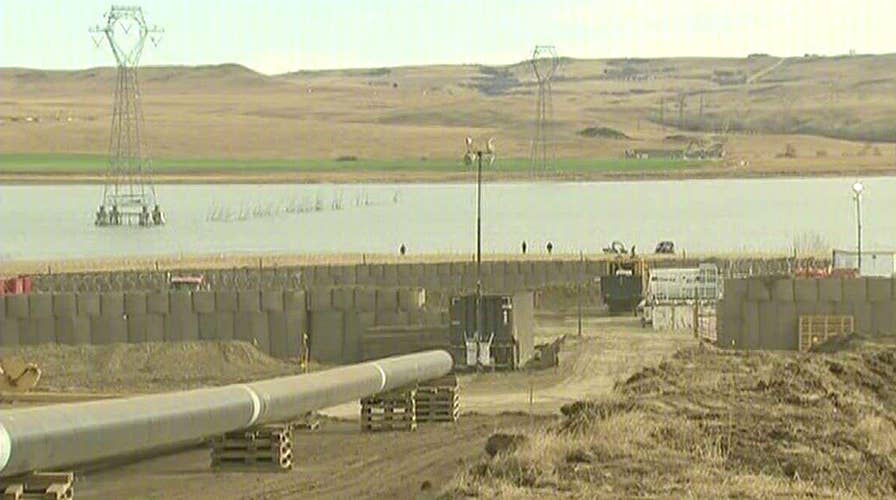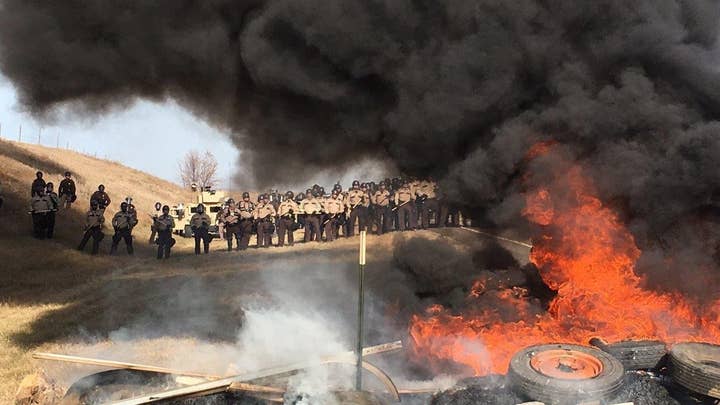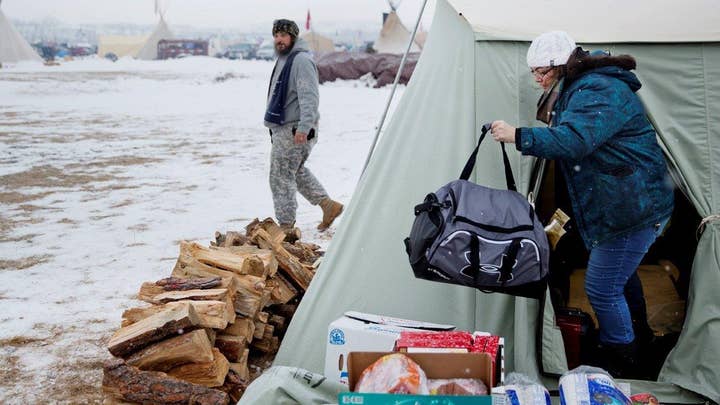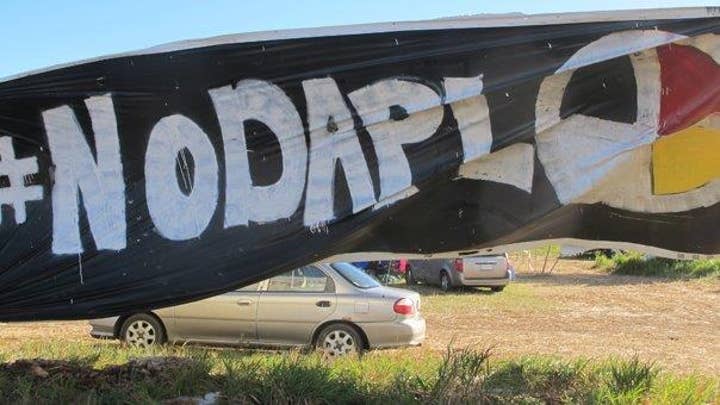The biggest trial you likely have never heard of will finally start Thursday. North Dakota v. United States will begin nearly eight years after the Dakota Access Pipeline (DAPL) protests broke out.
North Dakota sued under the Federal Tort Claims Act (FTCA), which allows individuals and states to sue the federal government for monetary damages attributed to its negligent or wrongful actions. Just like you can sue your neighbor if their houseguests destroy your yard, North Dakota sued for damages incurred by DAPL protesters.
North Dakota will finally have its day in court as it seeks reimbursement for the massive expense of more than $38 million from the federal government’s refusal to contain protests or assist with law enforcement.
Between 2014 and 2017, Energy Transfer Partners moved through the requisite permitting processes for its Dakota Access Pipeline. This included multiple opportunities for public engagement, site examinations and tribal consultations.
DRAFT REVIEW LEAVES FUTURE OF DAKOTA ACCESS PIPELINE RIVER CROSSING UNCLEAR
The North Dakota Public Service Commission’s comprehensive review of the 350-mile route in the state resulted in the issuance of the permits in January 2016. Meanwhile, the U.S. Army Corps of Engineers (USACE) was responsible for issuing a 0.21-mile easement to cross 92 feet below the Oahe Reservoir and their final Environmental Assessment found no significant impact.
While some took to the courtroom in disagreement with the Corps’ analysis, others trespassed on federal land in protest.
Much has been said, written and litigated about the pipeline itself, but this case is not a debate over whether the pipeline should continue operating. North Dakota’s suit seeks to hold the federal government accountable for its unlawful accommodation of destruction in North Dakota.
This is a story of the federal government’s appeasement of extremists and enablement of lawlessness as the product of the Obama administration’s political maneuvering which extended the timeline with a bogus review process and "litigation analysis."
The government repeatedly broke promises that its end goal was not to prolong the process or shut down the pipeline, even though its actions, including staging the areas for the protests, clearly indicated otherwise.
The protests which came to define the DAPL saga were a far cry from the initial peaceful prayer gathering organized by tribal members and quickly devolved into thousands of out-of-state protesters in just four months. The USACE ignored their own regulations and allowed these protestors to gather on federal property.
Not only were the conditions in these unapproved encampments at times dangerous and unsanitary, but the camps harbored dangerous individuals who were eager to co-opt the protest for their own violent purposes. Molotov cocktails were launched at police, equipment and cattle were stolen from nearby landowners, and wildlife and livestock were needlessly slaughtered. One protestor even fired a gun at police, and a National Guardsman was stalked and harassed.
As you might expect, North Dakota had to rely on the assistance of law enforcement from 11 other states just to manage the illegal protests. Hundreds of arrests were made, a whopping 93% of which were not North Dakotans.
DAKOTA ACCESS PIPELINE EXPECTED TO BRING $100M A YEAER TO NORTH DAKOTA
Even more enraging than watching federal agents refuse to do their jobs, was local residents being left to foot the bill.
All of this is a direct result of political pressure from environmental extremists and the Obama political apparatus.
On Sept. 9, 2016, the USACE achieved a pivotal legal victory allowing the continuation of pipeline construction. Yet in an unexpected turn, the Department of Justice, Department of the Interior, and USACE did an about-face, halting construction despite the court triumph they had sought.
Then, the USACE shifted the goal posts again by requiring a significantly more detailed environmental impact statement (EIS), only to rescind it again after the Obama administration was no longer in office. But by this time, the impact of the government’s "let it play out" approach left North Dakota with no resolution to the crime foisted upon them.
CLICK HERE TO GET THE OPINION NEWSLETTER
The aftermath of the DAPL controversy is about more than the pipeline, protests and policing costs. It highlights the corruption within the ranks of the federal government, which neglected to enforce standard USACE protest permitting procedures, drew out the process, and failed to assist law enforcement in any meaningful way.
Political expediency meant government officials chose to put protesters above established legal procedures, without considering the damage it would cause.
The FTCA was created for precisely this reason: to allow recourse for harm at the hands of the federal government. With DAPL, Washington politicked in inherently apolitical decisions. Political appointees and the White House should not have such sweeping power they can unilaterally disregard court rulings they disagree with, at the expense of taxpayers and individual states.
CLICK HERE TO GET THE FOX NEWS APP
Solid as its case may be, states are always the underdog going against the federal behemoth. No state has ever prevailed against the federal government at trial, but it does not mean they should not try.
More information and provocative details could very likely emerge during the trial, proving the government knew it was doing the wrong thing, but did it anyway. If North Dakota succeeds, this will be a groundbreaking victory if for no other reason than Washington will have to admit fault. Stay tuned.








































